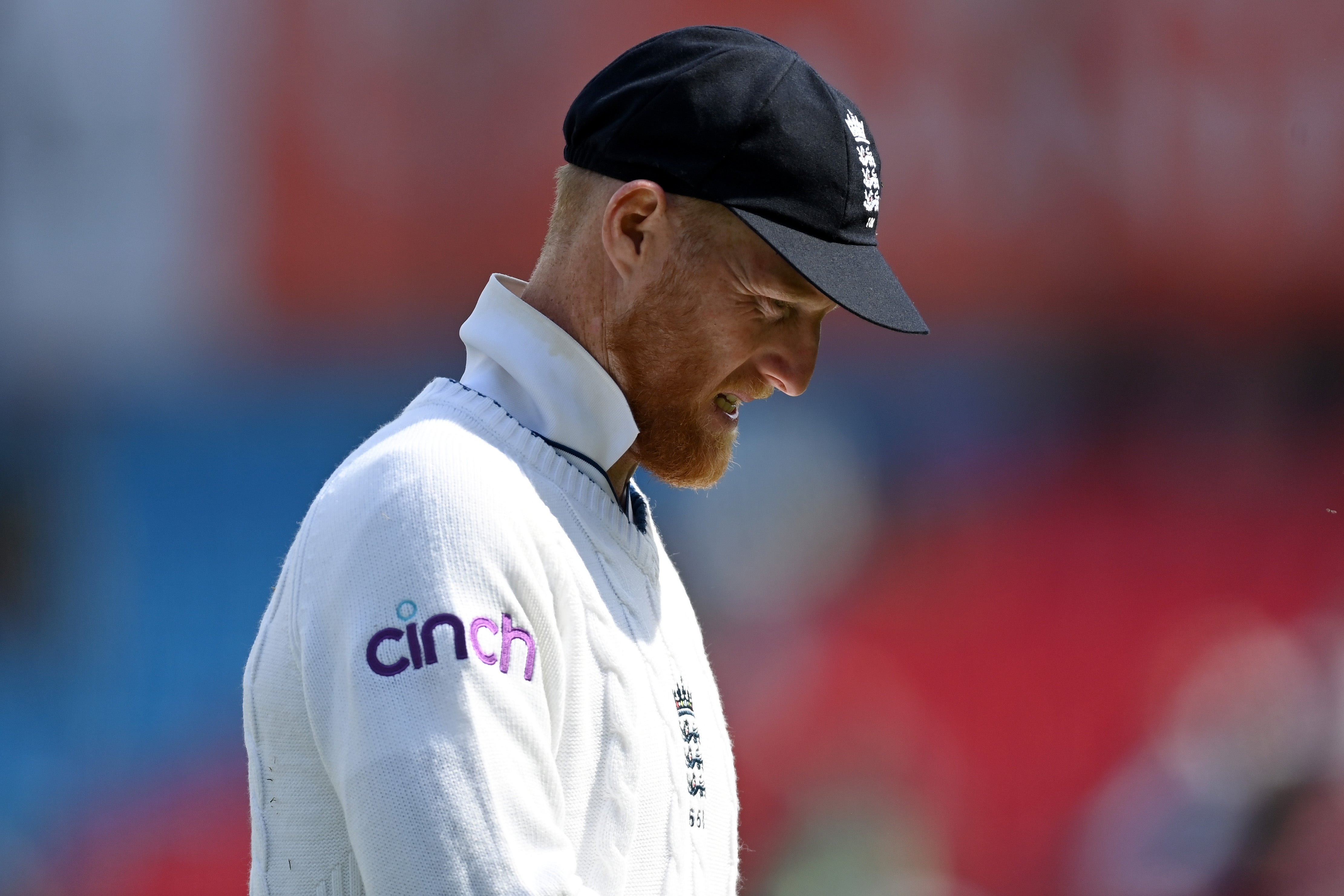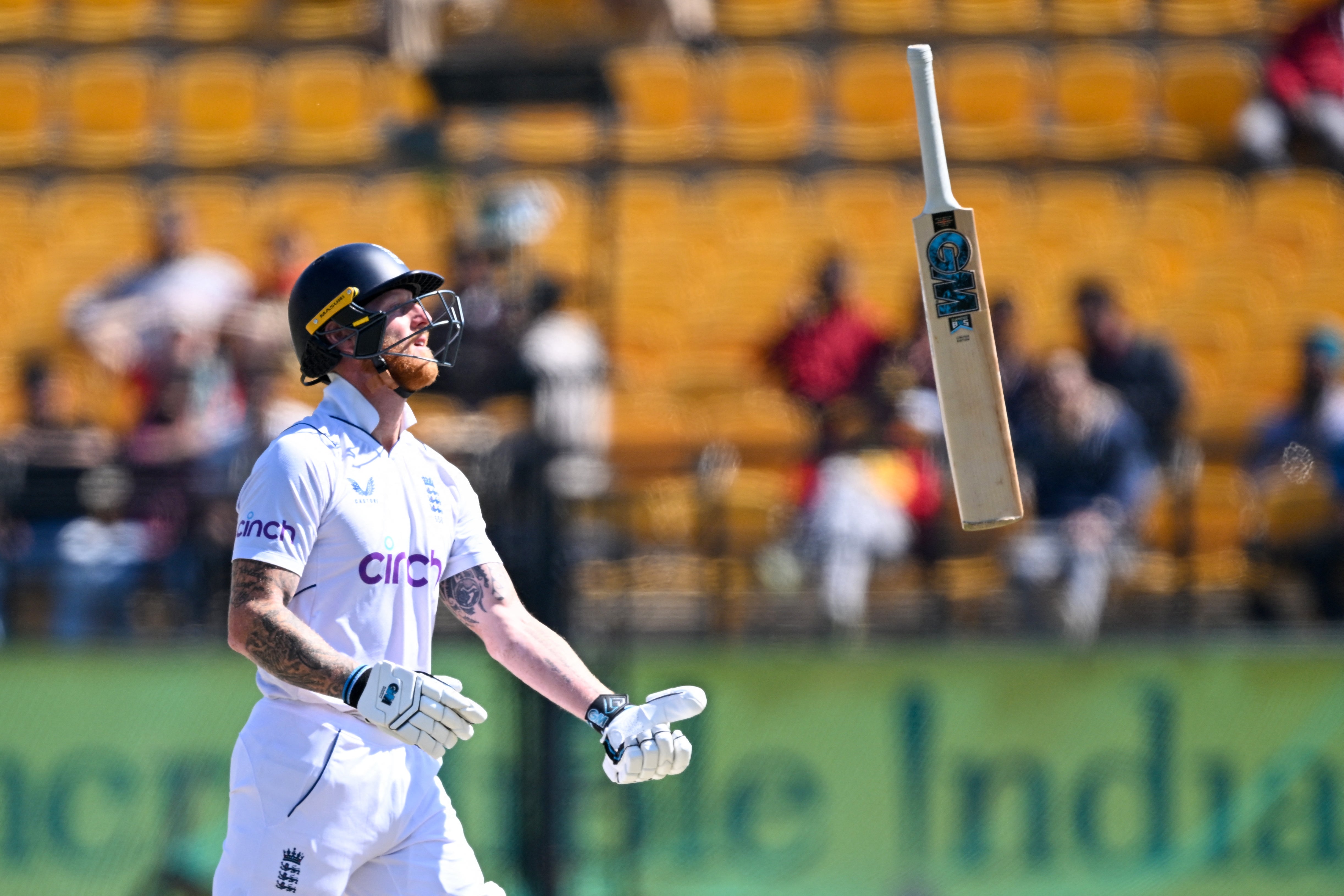Bazball needs a reboot as the England cricket sideshow begins series two
A 4-1 defeat in India meant Bazball’s largely successful first act ended with a whimper – now it’s time for Brendon McCullum, Ben Stokes and co to adjust and reload

England were never expected to win. England were never meant to win. And now that they haven’t won, it’s a disaster.
In part they were victims of their own success, the miracle of Hyderabad shifted the goalposts of what was to be expected from this team, from a place where winning a single Test in India, who had lost just three Tests of their last 46 at home, would be considered an achievement, to one where England dared to dream of winning three out of five – and instead lost the remaining four.
The problem for England is that such was the scale of the defeat in Dharamsala, by an innings and 65 runs, that the tone of the series has changed. England had chances of victory in Vizag, Rajkot and most clearly, Ranchi. But instead of those instances being viewed as 50-50 flashpoints, they now look like the moments when England simply couldn’t hold on any longer. Parity wasn’t equality; parity was England at their best and India with gears to move into.
England hung onto India’s coattails until day three of the fourth Test in Ranchi. And then they fell. There are sliding doors moments, what-ifs and wonderings attached to all sporting events. But in Ranchi, with the first-innings lead standing at 176 runs and just three Indian wickets remaining, England were as close to home as you can be without putting your key in the door.
From that moment, India’s last three wickets combined for 130 runs, before England lost all 10 of theirs for 145. Instead of heading to Dharamsala at 2-2, the first time in 29 years that a five-match series had reached its finale at two wins apiece, England had to lick their wounds and take one more beating for their troubles before they could go home.

It is the cruelty of the five-match series that defeats are exaggerated. No one else has played a five-Test series in India this century. So instead of leaving at 2-1 or 3-1 with heads held high, England went back into the fire and saw the scale of defeat exaggerated and reinforced. If you had to fight Mike Tyson, you’d rather do three rounds than five, but them’s the breaks.
England have now lost seven of their last 12 Test matches. When faced with the two best teams in the world, they failed to beat Australia at home and lost convincingly to India away. Neither are disastrous results but both are head wobbles for the all-conquering, all-consuming Bazball mindset of a year ago where the team could do no wrong.
Brendon McCullum acknowledges as much. In his most frank media interaction since taking the job, he conceded that “adjustments” were required, the need to be smarter with public messaging and the idea of balancing picking the strongest XI for any given match with “getting cricket into people” they see as investments for the future.
The language around the group is already changing. Gone are the tongue-in-cheek comments from Ben Duckett that “the more the better” when it comes to how many England want to chase, and so too are the hyper-positive assessments from support staff when they’re put up for media after a chastening day’s play. It’s all well and good saying your three-year-old’s painting is amazing and sticking it on the fridge, it’s less endearing when the kid is 26 and keeps nicking off.

Bazball isn’t over. It’s just not new anymore. The last two years will be remembered by cricket fans as a wonderful fever dream but, to create more memories, England need to win again.
“I think as long as we’re prepared to put our hands up and say that we need to adjust some of those things,” McCullum said after defeat in Dharamsala. “Never throw away what we’ve done to this point because those are the convictions and methods that we’ve got, but you also need to keep improving.”
In other words, stick to the process, but fine-tune the method. McCullum is halfway through a four-year deal that runs to the end of the 2025-26 Ashes. Defeat in Dharamsala marked the halfway point of his tenure, with him currently not expected to renew. Things, of course, can change. But four years is a long time in any job.
Stokes and McCullum had 13 Test matches to build towards the marquee series of the Ashes at home and India away. They now have 13 more before those opponents roll around in reverse, with India touring England in 2025 and the away Ashes beginning in November of that year.
The dullest, but most realistic take on this series is that cricket nature was simply doing its work and all England’s problems will solve themselves. India are better than England. And so India beat England. England are better than the West Indies and Sri Lanka who tour this summer. And they will (most likely) beat them. Crisis solved. Problems averted. Aren’t we good at cricket?

Who will be part of those expected victories, however, is the question. England’s batters will remain the same, with Harry Brook likely to return at No 5. The questions exist from No 7 down. Jonny Bairstow and Ben Foakes have battled it out for the gloves for the last few years. The former the better batter, the latter the truer gloveman. For the first time, McCullum didn’t rule out the entry of a third party to assume that role, with Ollie Robinson of Durham and Jamie Smith at Surrey waiting in the wings. There is a very real chance we have seen both Bairstow and Foakes in England whites for the final time.
There’ll be changes in the bowling department too. Shoaib Bashir and Tom Hartley have been given permission to challenge Jack Leach for the role of England’s No 1 spinner and McCullum all but guaranteed the uncapped pace bowler Gus Atkinson a debut over the summer. The bowling unit is going to change without doubt and potentially dramatically at that. And lest you need reminding, James Anderson is 41. He can’t go on forever and his grip on being England’s undisputed first seamer is no longer as strong as it once was with just 15 wickets across his last eight Tests.
This series will live long in the memory for two things. An example of India’s dominance and superiority, with only a miraculous Ollie Pope innings the difference between 4-1 and 5-0. And the what-could-have-been with England three wickets away from 2-2 at Dharamsala and potentially, history. The two are entirely different conclusions. But they are both true.
England were never expected to win. England were never meant to win. And now that they haven’t won, it’ll most likely be fine with changes to be made along the way. We all watched and enjoyed the first series of Bazball. Now it’s time for season two.
Join our commenting forum
Join thought-provoking conversations, follow other Independent readers and see their replies
Comments
Bookmark popover
Removed from bookmarks